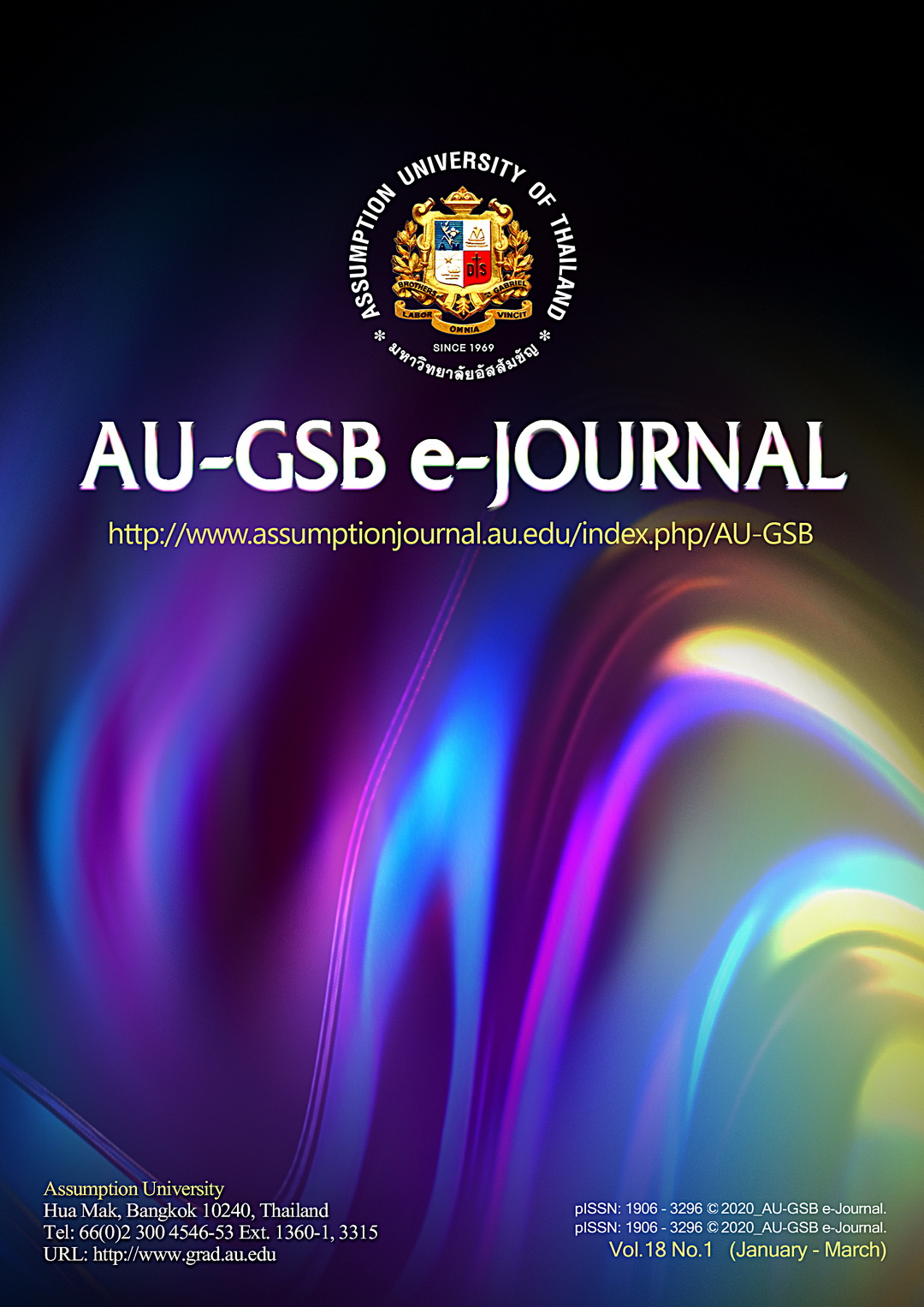The Relationship between Psychological Contract and Work Engagement of the Post-95s: Mediation of Psychological Capital and Moderation of Organizational Commitment
Main Article Content
Abstract
Purpose: This study investigates the relationship between psychological contract and work engagement among post-95 employees, emphasizing the mediating role of psychological capital and the moderating role of organizational commitment. It aims to provide theoretical insights and practical suggestions for improving employee engagement and organizational performance by focusing on this unique generational cohort. Research design, data and methodology: The research employed a structured survey distributed to 10 IT companies in Shanghai, targeting employees born between 1995 and 1999. A total of 590 valid responses were analyzed using structural equation modeling (SEM) to explore direct, mediating, and moderating relationships. Results: The findings reveal that psychological contract positively influences work engagement and psychological capital, while psychological capital positively impacts work engagement. Furthermore, psychological capital mediates the relationship between psychological contract and work engagement. Organizational commitment moderates the relationship, significantly enhancing the positive effects of psychological contract on work engagement. Conclusions: The study highlights the importance of psychological contract fulfillment and psychological capital development in enhancing post-95 employees' work engagement. Organizational commitment strengthens these effects, underscoring the need for enterprises to adopt flexible and employee-centric management strategies. These findings offer actionable insights for human resource practices and contribute to the theoretical understanding of generational dynamics in the workplace.
Downloads
Article Details

This work is licensed under a Creative Commons Attribution 4.0 International License.
The submitting author warrants that the submission is original and that she/he is the author of the submission together with the named co-authors; to the extend the submission incorporates text passages, figures, data, or other material from the work of others, the submitting author has obtained any necessary permission.
Articles in this journal are published under the Creative Commons Attribution License (CC-BY What does this mean?). This is to get more legal certainty about what readers can do with published articles, and thus a wider dissemination and archiving, which in turn makes publishing with this journal more valuable for you, the authors.
References
Blau, P. M. (1968). Social exchange. International Encyclopedia of the Social Sciences, 7(4), 452-457.
Cai, J., & Qian, T. (2017). Research on the change of employment value orientation of post-90s college students. Educational Modernization, 17(1), 194-198.
Çelik, M. (2018). The effect of psychological capital level of employees on workplace stress and employee turnover intention. Innovar, 28(68), 67-75.
Chen, S. L. (2018). Cross‐level effects of high‐commitment work systems on work engagement: the mediating role of psychological capital. Asia Pacific Journal of Human Resources, 56(3), 384-401.
Chen, X. R., & Hu, Y. L. (2017). Analysis on the work participation of post-95 employees in small and medium-sized enterprises. Human Resource Management, 17(9), 22-27.
Duan, F., & Wang, D. Y. (2019). Suggestions on the training of new employees in enterprises based on the professional values of "post-95" college students. Science and Technology Economy Guide, 19(1), 29-32.
Hu, G. X., Tong, Z., & Chen, S. Y. (2021). The effect of salary and welfare satisfaction on the subjective well-being of college teachers: The mediating effect of organizational commitment and the moderating effect of self-actualization orientation. Modern Education, 16(2), 64-70.
Luthans, F., & Youssef, C. M. (2004). Human, social, and now positive psychological capital management: Investing in people for competitive advantage. Organizational Dynamics, 33(2), 143-160.
Luthans, F., Norman, S. M., Avolio, B. J., & Avey, J. B. (2008). The mediating role of psychological capital in the supportive organizational climate—employee performance relationship. Journal of Organizational Behavior: The International Journal of Industrial, Occupational and Organizational Psychology and Behavior, 29(2), 219-238.
Mowday, R. T., Steers, R. M., & Porter, L. W. (1979). The measurement of organizational commitment. Journal of Vocational Behavior, 14(2), 224-247.
Nan, M. L., Zhou, S. Q., & Zhang, M. Q. (2020). Analysis of factors affecting post-95s’ willingness to choose employment locations from the perspective of bounded rationality. Business Conditions, 20(3), 25-28.
Nie, W. (2017). The Effect of Compulsory Organizational Citizenship Behavior on Turnover Intention of New Generation Employees——Double Mediating Model of Role Pressure and Organizational Commitment (Master Thesis). Minnan Normal University.
Qi, T. Y., & Yang, X. H. (2019). An analysis of salary expectations of "Post-95" college students based on mental accounts. Employment of Chinese College Students, 9(20), 57-64.
Qin, K., Jia, Z., Lu, T., Liu, S., Lan, J., You, X., & Li, Y. (2021). The role of work engagement in the association between psychological capital and safety citizenship behavior in coal miners: A mediation analysis. International Journal of Environmental Research and Public Health, 18(17), 930-948.
Schaufeli, W. B. (2006). The measurement of work engagement with a short questionnaire: A cross-national study. Educational and Psychological Measurement, 66(4), 701-716.
Sels, L., Janssens, M., & Brande, I. (2004). Assessing the nature of psychological contracts: A validation of six dimensions. Journal of Organizational Behavior: The International Journal of Industrial, Occupational and Organizational Psychology and Behavior, 25(4), 461-488.
Wang, L., Liao, B., Chi, W., & Guo, N. Q. (2020). The incentive effect of middle-level managers carrying the top: How the design of organizational compensation hierarchy affects employee performance. Tsinghua Management Review, 20(4), 69-81.
Wang, X. Z., Bai, X. J., & Li, X. J. (2010). Research on the relationship between dispatch employees' cognition of employment form and their work attitude. Psychological Science, 10(1), 67-70.
Wei, J. T. (2021). Research on the influence of organizational fairness and organizational commitment on work performance of logistics industry employees. China Logistics and Purchasing, 21(12), 26-32.
Wu, W. T. (2013). Human Resource Management Activities, Employee Psychological Contract and Organizational Commitment: A Case Study of Banking Industry (Master Thesis). Tamkang University, China.
Ye, Y. T. (2018). Prospects for post-95 employment: New fields disrupt old industries and new frontiers create new opportunities. Invention and Innovation·Educational Informatization, 18(12), 22-23.
Zhan, C. F. (2021). Strengthen and improve salary management to effectively stimulate the vitality of social organizations. Management and Science, 17(12), 32-35.
